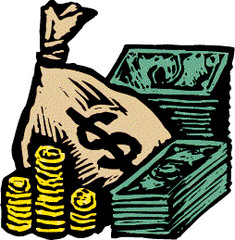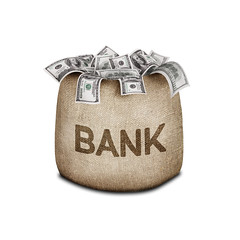AMSCO United States History 2015 Edition, Chapter 19 The Politics of the Gilded Age, 1877-1900
| 8817816467 | laissez-faire economics and politics | The idea that government should do little to interfer with the free market. (p. 380) |  | 0 |
| 8817816474 | patronage politics | The use of government resources to reward individuals for their electoral support. (p. 381) |  | 1 |
| 8817816475 | corrupt politicians | Party patronage, the process of providing jobs to faithful party members was more important than policy issues during the Gilded Age. (p. 381) |  | 2 |
| 8817816491 | Stalwarts, Halfbreeds, and Mugwumps | Groups which competed for lucrative jobs in the patronage system. (p. 381) |  | 3 |
| 8817816493 | assassination of James Garfield | President James Garfield was shot while preparing to board a train. He died after an 11 week struggle. (p. 383) |  | 4 |
| 8817816494 | Chester A. Arthur | He became president after James Garfield died of a gun shot wound. (p. 383) |  | 5 |
| 8817816495 | Pendleton Act of 1881 | Set up by the Civil Service Commission, it created a system where federal jobs were awarded based on competitive exams. (p. 384) |  | 6 |
| 8817816498 | Grover Cleveland | In 1884, he was elected president of the United States. He was the first Democratic president since 1856. (p. 383) |  | 7 |
| 8817816505 | "hard" money vs. "soft" money | Money backed by gold vs. paper money not backed by specie (gold or silver). (p. 384) |  | 8 |
| 8817816506 | banks, creditors vs. debtors | Debtors wanted more "easy, soft" money in circulation. On the opposite side creditors stood for "hard, sound" money - meaning currency backed by gold. (p. 384) |  | 9 |
| 8817816507 | Panic of 1873, "Crime of 73" | Congress stopped making silver coins. (p. 385) |  | 10 |
| 8817816508 | Specie Resumption Act of 1875 | Congress sided with creditors and investors when it passed this act which withdrew all greenbacks (paper money not backed by gold or silver) from circulation. (p. 385) |  | 11 |
| 8817816509 | Greenback party | This political party was formed by supporters of paper money not backed by gold or silver. (p. 384) |  | 12 |
| 8817816510 | James B. Weaver | In 1892, he was the Populist candidate for president. He is one of the few third party candidates in history to have ever won any electoral votes. (p. 387) |  | 13 |
| 8817816511 | Bland-Allison Act of 1878 | In 1878, this act allowed a limited coinage of silver each month at the standard silver-to-gold ratio of 16 to 1. (p. 385) |  | 14 |
| 8817816512 | Sherman Silver Purchase Act of 1890 | This act increased the coinage of silver but it was not enough to satisfy the farmers and miners. (p. 386) |  | 15 |
| 8817816513 | run on gold reserves, J.P. Morgan bail out | A decline in silver prices encouraged investors to trade their silver dollars for gold dollars. The gold reserve fell dangerously low and President Grover Cleveland was forced to repeal the Sherman Silver Purchase Act of 1890. The president then turned to J.P. Morgan to borrow $65 million in gold to support the dollar and the gold standard. (p. 387) |  | 16 |
| 8817816514 | repeal of Sherman Silver Purchase Act | A decline in silver prices encouraged investors to trade their silver dollars for gold dollars. The gold reserve fell dangerously low and President Grover Cleveland was forced to repeal the Sherman Silver Purchase Act of 1890. (p. 387) |  | 17 |
| 8817816515 | election of 1888, Harrison "Billion Dollar Congress" | In 1888, the Republican Benjamin Harrison became the president and the Republicans controlled Congress. They passed the first billion dollar budget in U.S. history. (p. 386) |  | 18 |
| 8817816516 | rise of the Populist Party | In 1892, delegates met in Omaha, Nebraska to draft a political platform that would reduce the power of trusts and bankers. They nominated James Weaver as their candidate for president. (p. 386) |  | 19 |
| 8817816517 | Farmers' Alliances in South and West | In 1890, this group of discontented farmers elected senators, representatives, governors, and majorities in state legislatures in the West. (p. 386) |  | 20 |
| 8817816518 | Alliance of whites and blacks in South | The Populist party tried to form a political alliance with these poor farmers. (p. 387) |  | 21 |
| 8817816519 | Thomas Watson | He was from Georgia and he appealed to poor farmers of both races to join the Populists party. (p. 387) |  | 22 |
| 8817816520 | reformers vs. rasism in South | In the presidential election of 1892, Southern Democrats feared the Populist party and used every technique possible to keep blacks from voting. (p. 387) |  | 23 |
| 8817816521 | Omaha Platform | In 1892, the Populist party met in Omaha, Nebraska to draft this political platform and nominate a presidential candidate. (p 386) |  | 24 |
| 8817816522 | government regulation and ownership | The Populist movement attacked laissez-faire capitalism and attempted to form a political alliance between poor whites and poor blacks. (p. 387) |  | 25 |
| 8817816523 | election of 1892, Cleveland returns | The 1892 presidential election was between President Benjamin Harrison and former president Grover Cleveland. Cleveland became the only president to win a presidential election after having left the office. (p. 387) |  | 26 |
| 8817816524 | Panic of 1893 | In 1893, the stock market crashed as a result of speculation in railroad companies. One of the worst and longest depressions in U.S. history. (p. 387) |  | 27 |
| 8817816525 | Coxey's Army, March on Washington | In 1894, Populist Jacob A. Coxey led a march to Washington to demand that the federal government spend $500 million on public works programs. (p. 388) |  | 28 |
| 8817816526 | Coin's Financial School | In 1894, this book taught Americans that unlimited silver coining would end the economic problems. (p. 388) |  | 29 |
| 8817816527 | William Jennings Bryan | The 1896 Democratic nominee for president. (p. 388) |  | 30 |
| 8817816528 | "Cross of Gold" Speech | William Jennings Bryan gave this speech at the 1896 Democratic convention. The prosilver and anti-gold speech assured him of the nomination. (p. 389) |  | 31 |
| 8817816534 | gold standard and higher tariff | In 1897, William McKinley became president just as gold discoveries in Alaska increased the money supply under the gold standard. The Dingley Tariff increased the tariff rate to 46 percent. (p. 390) |  | 32 |

